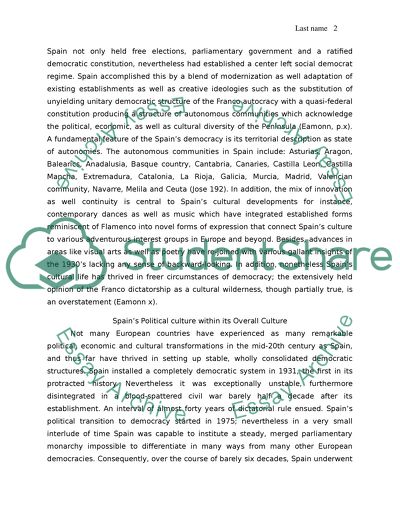Cite this document
(“Spain Research Paper Example | Topics and Well Written Essays - 1750 words”, n.d.)
Spain Research Paper Example | Topics and Well Written Essays - 1750 words. Retrieved from https://studentshare.org/miscellaneous/1636381-spain
Spain Research Paper Example | Topics and Well Written Essays - 1750 words. Retrieved from https://studentshare.org/miscellaneous/1636381-spain
(Spain Research Paper Example | Topics and Well Written Essays - 1750 Words)
Spain Research Paper Example | Topics and Well Written Essays - 1750 Words. https://studentshare.org/miscellaneous/1636381-spain.
Spain Research Paper Example | Topics and Well Written Essays - 1750 Words. https://studentshare.org/miscellaneous/1636381-spain.
“Spain Research Paper Example | Topics and Well Written Essays - 1750 Words”, n.d. https://studentshare.org/miscellaneous/1636381-spain.


